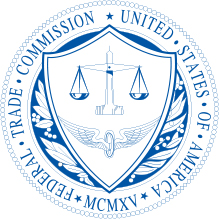Because that's a mouthful, let's first understand the facts. As a condition of the T-Mobile/Sprint merger, the DOJ Antitrust Division required T-Mobile to spin off Sprint's largest mobile virtual network operator (MVNO) brand, Boost Mobile, to DISH. The purpose of this spinoff was to facilitate DISH's entry into the mobile broadband market. Combining the acquired MVNO brand with its own network infrastructure potentially would enable DISH to take Sprint's place as the fourth largest facilities-based mobile broadband provider. Boost Mobile had roughly 9.3 million subscribers at the time the merger consummated, so transferring it to DISH gave DISH a pool of customers to kickstart its business.
But as Free State Foundation Director of Policy Studies Seth Cooper explained in an August 2021 Perspectives from FSF Scholars, T-Mobile's choice to sunset the 3G CDMA network it acquired improved mobile broadband service quality for nearly every T-Mobile customer. Knowing this result would be likely, the FCC's 2019 order approving the T-Mobile/Sprint merger declined to require T-Mobile to continue CDMA network operations. Notably, T-Mobile or Boost customers would enjoy the benefits of the network sunset if they upgraded their devices.
Enter the Dale complaint. The Dale plaintiffs allege that T-Mobile sunset its CDMA network earlier than it previously indicated to sabotage DISH's chances at successfully entering the mobile broadband market. In their view, the CDMA sunset forced the customers DISH acquired from Boost Mobile to buy new devices, making them highly vulnerable to "churn" or "switching" to another provider. With DISH then hemorrhaging customers, its revenues would sink and its costs would increase, making it more difficult to construct a nationwide 5G network. And this supposedly would make T-Mobile's settlement commitments to sell network services to DISH meaningless, because DISH's mobile business would quickly lose its customers, making it dead-on-arrival. The complaint then points to the fact that DISH cut an eventual network services agreement with AT&T instead of T-Mobile as more evidence of T-Mobile harming competition.
But the Dale claimants ignores two critical facts. First, the terms of DISH's network usage agreement with AT&T appear to be better than its original agreement with T-Mobile. The contract with AT&T is for a duration of 10 years, while T-Mobile's agreement with DISH is for a duration of 7 years. And the deal does not appear to have increased costs for DISH. The Dale plaintiffs might contend that, even if DISH got a better deal with AT&T, T-Mobile's CDMA sunset still harmed competition by rendering DISH customers' devices useless because AT&T does not have an active CDMA network.
That hypothetical criticism would fall short because of the second critical fact. T-Mobile and DISH resolved their dispute over the CDMA sunset and inked a new, lower-priced network services agreement in which T-Mobile agreed to assist with transitioning Boost Mobile customers to GSM-capable devices. Thus, even if upgrading to next-gen mobile network technology could be conceived as cognizable consumer harm, T-Mobile's agreement with DISH alleviated that harm. Indeed, T-Mobile's CDMA sunset improved mobile broadband service for virtually every customer, likewise increasing network quality competition.
In view of the facts, the complaint in Dale shows an absence of harm and a benefit to consumers. Antitrust claims with no harm and real benefits to consumers are not viable.
Antitrust law is supposed to protect competition, not competitors. Yet far too often, the crux of arguments made by antitrust claimants is harm to particular competitors. Of course, certain types of harm to particular competitors can harm competition, if there is evidence that it leads to market price increases and output reductions. But in this case, harm is nowhere near clear given the pro-competitive benefits from sunsetting legacy technologies and expanding next-generation technologies.
Under the Dale plaintiffs' ideal version of competition, T-Mobile's network infrastructure and financial resources would have been conscripted to maintain an outdated technology to the advantage of a competitor. This would have slowed 5G network deployment and made T-Mobile customers worse off. The plaintiffs in Dale should have difficulty in convincing a court to side with claims that are based on such a skewed view of competition.
Realizing the benefits of next-gen networks requires that old legacy technologies be timely sunset. For the good of consumers, 5G networks have rapidly been deployed across the U.S. DISH still has a shot to become the fourth nationwide facilities-based 5G provider, and its recent announcement that its 5G network is available to more than 20% of the US population indicates that it may be on pace.









